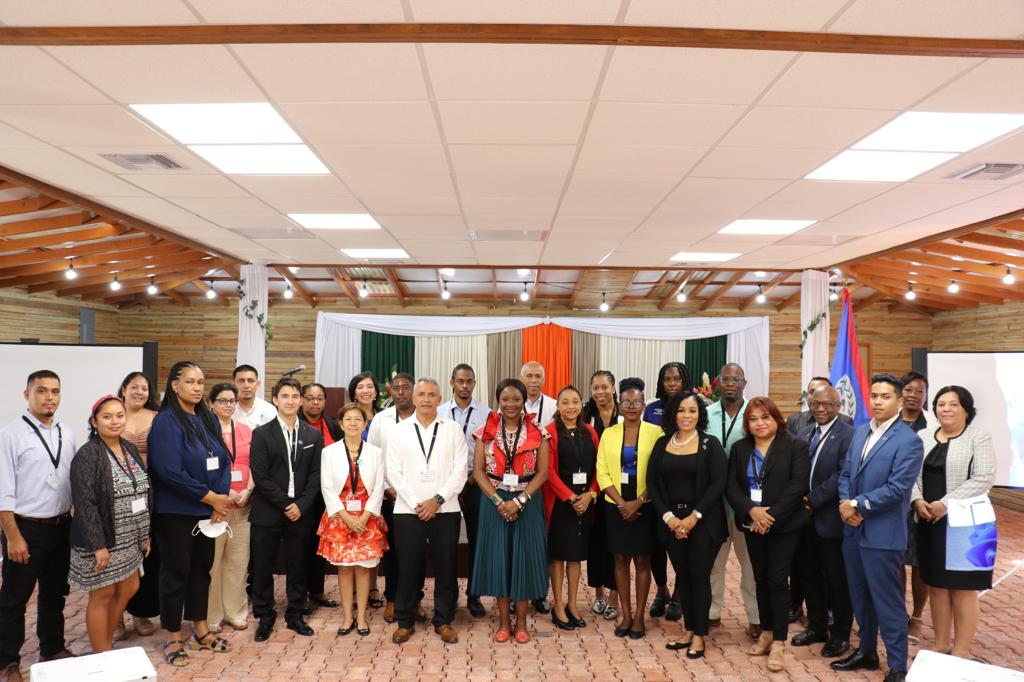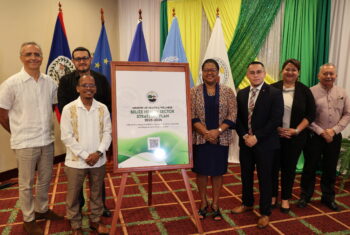Belmopan. February 21, 2023.
The Ministry of Sustainable Development, Climate Change, and Disaster Risk Management, in partnership with the Secretariat of Ramsar Convention on Wetlands, is hosting a Caribbean regional meeting under the auspices of the project “Wise use of Caribbean Wetlands for Climate Change Mitigation and Conservation of their Ecosystems,” from February 11-22, 2023.
A workshop was held from February 11-12, which brought together the administrative authorities and high-level officials of the Contracting Parties of the Convention to share experiences in best practices, challenges, and opportunities to improve wetlands management throughout the region. A technical workshop followed from February 13-22 that facilitated discussions on implementing a climate vulnerability assessment methodology, identifying priority sites for climate change mitigation and adaptation, and biodiversity conservation. The working groups also covered key topics related to wetland governance, institutional capacities, laws, and policy.
This project aims to implement effective conservation and wise use measures for Caribbean wetlands to maintain their ecological character, contributing to the countries’ resilience and adaptability to climate change.
The project will give support for the following:
- The strengthening of legislation and policy at the national level and improvement of the framework within which wetlands are managed.
- Baseline studies and monitoring of selected sites against key indicators to inform on climate change impacts and ecosystem resiliency against these pressures.
- Capacity building and strengthening of national authorities, managers, stakeholders, and local communities.
The project is essential to Belize and the Caribbean region as it seeks to address the current and foreseen threats to wetlands due to increased population, development, and effects of climate change. Belize has five legally recognized wetlands, two of which are Ramsar sites: Crooked Tree Wildlife Sanctuary and Sarstoon Temash National Park.
The eight participating countries were Antigua and Barbuda, Cuba, Dominican Republic, Belize, Grenada, Jamaica, Saint Lucia, and Suriname. Belize welcomed the opportunity to host these countries as it provided the space for open dialogue on climate change and defined regional approaches to become more resilient to the effects of climate change.
Dr. Musonda Mumba, Secretary General of the Ramsar Convention on Wetlands, underscored that without wetlands there would be no water and thus the importance to first conserve then restore these critical ecosystems for long-term sustainable development.
Hon. Orlando Habet, Minister of Sustainable Development, Climate Change, and Disaster Risk Management, highlighted that “Belize’s inclusion of wetlands in our NDCs, commitments to the Bonn Challenge, Initiative 20X20, and its National Restoration Strategy show our resolve for the conservation and restoration of these ecosystems now and for the foreseeable future.”
Ends
For more information, please contact:
Devin Azueta
Communications Officer
Ministry of Sustainable Development, Climate Change, and Disaster Risk Management
communications@environment.gov.bz


